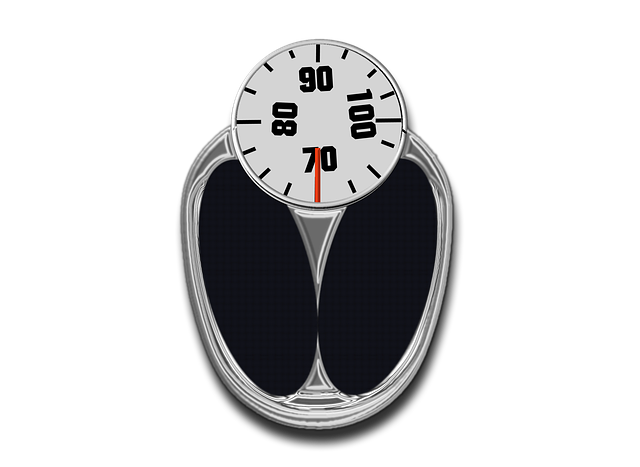Court-mandated anger management programs offer rehabilitation through group therapy, counseling, and education on techniques like deep breathing, cognitive restructuring, and problem-solving. Aimed at reducing future conflicts and criminal behavior, these programs use CBT, Mindfulness-Based Anger Management, and other evidence-based strategies to empower individuals with healthier emotional regulation skills. Structured curriculums include interactive discussions, mindfulness exercises, and conflict resolution training, reinforcing techniques through assignments and home practices. While effective for offenders, accessibility challenges due to financial barriers and a one-size-fits-all approach affect marginalized communities, advocating for tailored anger control therapy for better long-term outcomes.
Many courts worldwide now mandate anger management programs for offenders, recognizing the connection between uncontrolled rage and criminal behavior. This article explores court-mandated anger control therapy, its benefits, and challenges. We’ll break down different therapy types, the class process, and effective strategies for success. Understanding these aspects is crucial in navigating these programs and fostering positive change.
Understanding Court-Mandated Anger Management Programs

Court-mandated anger management programs are designed to help individuals who have been involved in legal disputes, especially those charged with crimes related to anger or aggression, learn effective anger control therapy techniques. These programs are not just about punishment but also about rehabilitation and ensuring that participants develop healthier coping mechanisms for managing their anger. The court mandates these programs as a condition of probation or sentence, recognizing the importance of addressing underlying issues that may have contributed to aggressive behavior.
These programs typically involve group therapy sessions, individual counseling, and education on anger management strategies. Participants learn to identify triggers, understand their emotional responses, and employ techniques such as deep breathing exercises, cognitive restructuring, and problem-solving skills to manage their anger effectively. The goal is not just to reduce the intensity of angry feelings but also to help individuals make better decisions in high-stress situations, thereby minimizing the risk of future conflicts or criminal behavior.
Why Courts Order Anger Control Therapy

Courts often mandate anger control therapy for individuals involved in legal disputes, particularly those with a history of violent outbursts or aggressive behavior. This intervention is seen as a proactive measure to prevent further harm and promote peaceful conflict resolution. Anger management programs are designed to help participants understand and manage their anger in healthy ways, reducing the likelihood of impulsive actions that could lead to legal consequences.
By ordering anger control therapy, courts aim to empower individuals with coping strategies, enhance self-awareness, and foster better decision-making skills. These programs can be a game-changer for those struggling with anger issues, offering a safe space to explore underlying triggers and develop constructive ways to express emotions. Ultimately, it’s a step towards creating a more harmonious society by addressing the root cause of aggressive behavior.
Types of Anger Management Therapies

Court-mandated anger management programs offer various therapeutic approaches to help individuals gain better control over their anger. One common type is Cognitive Behavioral Therapy (CBT), which focuses on identifying and changing negative thought patterns and behaviors associated with anger. CBT teaches participants how to manage stress, recognize triggers, and develop healthy coping strategies. Through this process, they learn to respond to challenging situations calmly and avoid impulsive actions.
Another effective method is Mindfulness-Based Anger Management, which encourages individuals to stay present and aware of their emotions. This therapy involves learning techniques like meditation and deep breathing to help regulate anger in the moment. By cultivating mindfulness, participants can better understand their triggers and reactions, fostering a sense of emotional control. These therapeutic methods offer proven strategies for anger control therapy, enabling individuals to transform their lives by managing their anger effectively.
The Process and Components of Anger Management Classes

Court-mandated anger management classes are designed to equip individuals with effective strategies to manage and reduce angry impulses, ultimately promoting healthier relationships and community safety. The process typically involves a structured curriculum delivered by trained professionals. Participants engage in interactive discussions, learn cognitive behavioral techniques, and practice mindfulness exercises tailored to their specific needs. These classes foster an understanding of anger triggers, provide healthy coping mechanisms, and offer a safe space for individuals to share experiences and gain insights from peers facing similar challenges.
The components of anger management therapy encompass education on emotional regulation, communication skills, stress management, and conflict resolution strategies. Through role-playing scenarios and group activities, participants develop better self-awareness and learn to respond to anger-provoking situations constructively. Regular assignments and home practices reinforce the techniques learned in class, encouraging consistent application outside the controlled environment of therapy sessions. The ultimate goal is to empower individuals with the tools needed to prevent anger from escalating into harmful behaviors.
Benefits of Anger Control Therapy for Offenders

Anger control therapy offers a multitude of benefits for offenders, serving as a powerful tool in their journey towards positive change. By learning effective anger management strategies, individuals can reduce impulsive behaviors and violent outbursts, fostering a sense of calm and emotional regulation. This therapy provides an opportunity to explore underlying triggers, understand the impact of their actions on others, and develop healthier coping mechanisms.
Through structured sessions, offenders gain valuable insights into their anger patterns, enabling them to make more thoughtful decisions and react appropriately in challenging situations. As a result, they can improve their relationships, enhance their overall well-being, and decrease the likelihood of reoffending. Anger control therapy empowers individuals to break free from destructive cycles, leading to a safer and more harmonious society.
Challenges and Criticisms of Court-Mandated Programs

Court-mandated anger management programs, while well-intentioned, face several challenges and criticisms. One significant concern is accessibility; not all individuals, especially those from marginalized communities, have equal access to these programs due to financial barriers or a lack of resources in their area. This disparity can exacerbate existing social inequalities, as those with greater means are more likely to receive the necessary support for anger control therapy.
Another criticism revolves around individualization and effectiveness. Anger is often a complex emotion stemming from various personal and environmental factors. One-size-fits-all programs might not adequately address these complexities, leading to reduced participation and limited outcomes. Critics argue that court-mandated programs should be more flexible and tailored to each person’s unique needs, focusing on evidence-based anger control therapy techniques for better long-term results.
Effective Strategies for Success in Anger Management Therapy

Anger management therapy involves a combination of strategies tailored to help individuals gain better control over their emotions. One effective approach is cognitive behavioral therapy (CBT), which focuses on identifying and changing negative thought patterns contributing to anger. By learning to challenge distorted beliefs and replace them with more rational ones, individuals can reduce their overall anger levels. Additionally, mindfulness techniques like meditation and deep breathing exercises are powerful tools within CBT, helping to calm the mind and body during moments of heightened emotion.
Another successful strategy is interpersonal therapy, which emphasizes improving communication skills and resolving conflicts constructively. This involves learning active listening, assertiveness training, and conflict resolution tactics. By fostering healthier relationships and enhancing social support networks, individuals can better manage anger in various settings. Furthermore, group therapy sessions provide a safe space to share experiences, gain insights from peers, and build a supportive community, all of which contribute to long-term success in anger control therapy.
